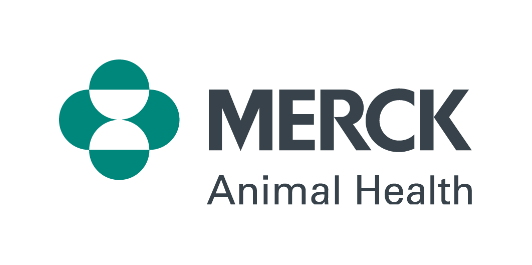New Rabbit Vaccine Protects Against Myxomatosis and RHD in Clinical Studies
BOXMEER (The Netherlands), April 5, 2012 – Clinical studies published last month with a new bivalent rabbit vaccine for subcutaneous injection (NOBIVAC® Myxo-RHD) against myxomatosis and rabbit hemorrhagic disease (RHD) have shown that the vaccine offers excellent protection against these two viral diseases. In addition, vaccinated rabbits in the studies remained healthy and no adverse signs were observed.
The studies, part of the EU registration dossier of the vaccine, were performed at the Merck Animal Health research center in Milton Keynes (U.K.) and were recently published in the peer-reviewed journal Veterinary Record*, the official journal of the British Veterinary Association. In an accompanying editorial**, it was concluded that the efficacy and safety outcome as observed with the new vaccine “represents a significant and welcome step forward in rabbit health care and disease prevention”.
The publication by Spibey and colleagues described in total four studies dealing with efficacy against myxomatosis, efficacy against RHD as well as dissemination and shedding of the vaccine virus. After exposure to virulent strains of both pathogens, all vaccinated rabbits remained healthy and showed no adverse signs, whereas the animals of the unvaccinated control groups all showed severe signs of disease. In contrast to naturally infected rabbits, vaccinated animals did not shed vaccine virus. Additionally the vaccine strain did not disseminate in the vaccinated animals; it was only possible to detect vaccine virus in the local draining lymph node and the skin immediately around the vaccination site.
“The clinical results with NOBIVAC Myxo-RHD as reported in this new publication demonstrate the excellent efficacy and safety profile of this novel vaccine. In addition to the obvious benefits of protection against disease, this vaccine now provides veterinarians with an opportunity to initiate and maintain a dialogue with existing and potential new rabbit-owning clients in order to improve general healthcare and husbandry standards, thus helping them to maximize the pleasure they get from their pet” said David Sutton, BVetMed MRCVS, global technical director for small animal vaccines at Merck Animal Health.
The vaccine is a live vector vaccine and was constructed by recombinant technology from an attenuated myxoma virus strain by replacement of two myxoma virulence factors (MGF and M11L) with the capsid protein gene of the RHD virus. As a result, the recombinant virus is not able to induce disease, but generates a significant immune response against both myxomatosis and RHD.
Myxomatosis and RHD are highly contagious viral diseases that are a major threat to rabbits, but can be controlled by regular vaccination. If left untreated, myxomatosis and RHD result in high morbidity and mortality rates. In spite of this, vaccination rates remain low with only an estimated 15 percent of rabbits receiving regular vaccinations. A recent survey has shown that rabbits are the third most popular pet species in Europe (after dogs and cats) and rabbit owners are highly motivated to seek veterinary advice once they are made aware of their pet’s specific health needs. They are, however, less likely to take their pet to a veterinary practice than cat or dog owners or to seek advice on vaccination, neutering or other routine health matters.
* Spibey N, McCabe VJ, Greenwood NM, Jack SC, Sutton D, van der Waart L. Novel bivalent vectored vaccine for control of myxomatosis and rabbit haemorrhagic disease. Veterinary Record 2012;170:309.
** Meredith A. A vaccine against myxomatosis and RHD: a step forward for rabbit health [Editorial]. Veterinary Record 2012;170:307-308.
